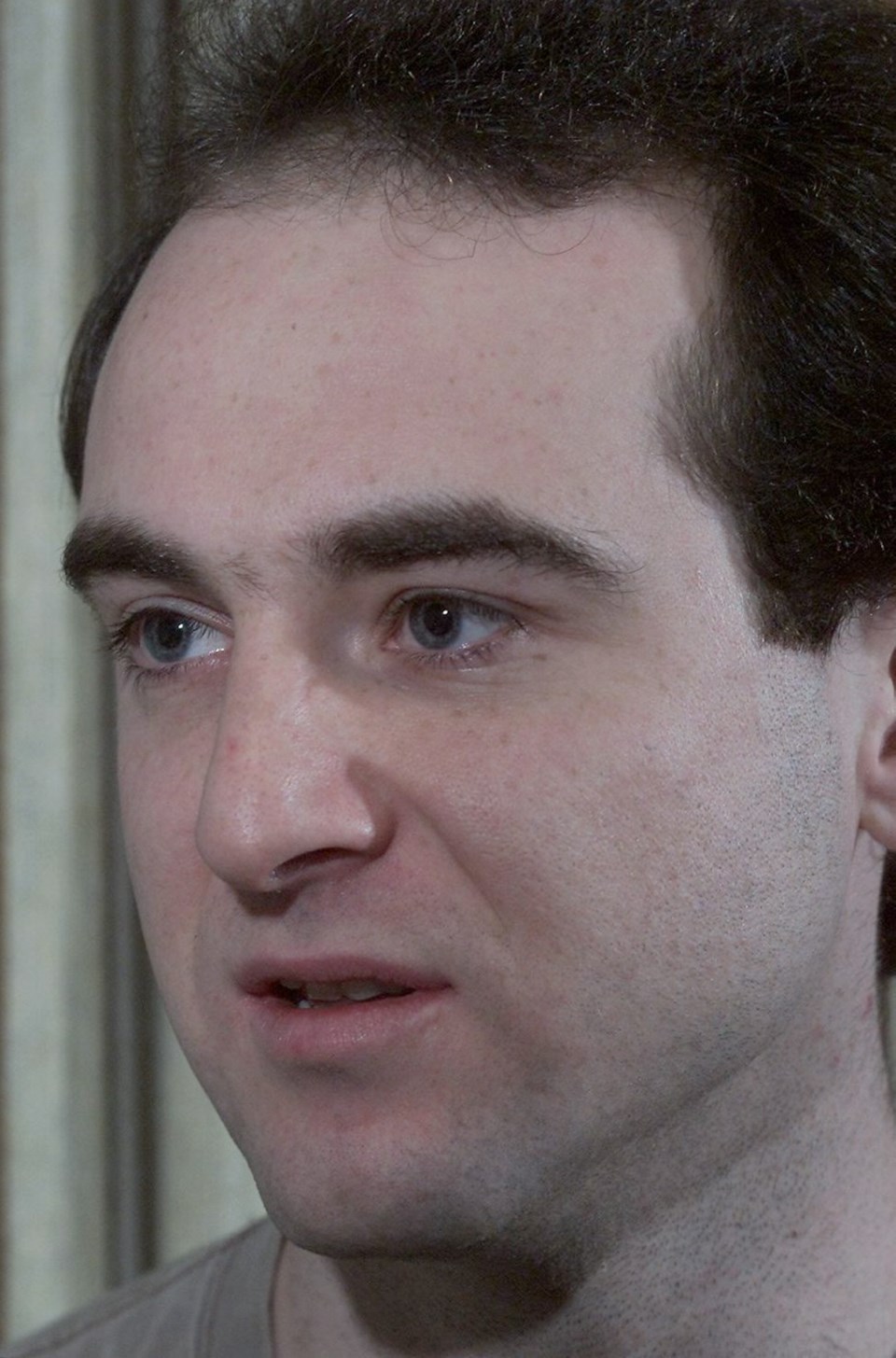Thirty years after he murdered a friend’s mother and grandmother for inheritance money, Derik Lord has been granted day parole for four months, despite opposition from family members of his victims.
Lord, now 47 and married with a son, was transferred to a minimum-security institution in 2016.
At a hearing March 10, with an Indigenous elder and an assistant present, Lord was granted day parole that will allow him to live at a community residential facility and work at a camp in northern B.C. where he has previously completed two successful work releases.
Lord continues to claim he was wrongly convicted of the first-degree murders of Sharon Huenemann, 47, and her 69-year-old mother, Doris Leatherbarrow.
Lord and David Muir killed the women after their Mount Douglas Secondary School classmate Darren Huenemann promised them part of a $4-million inheritance.
The two 17-year-olds planned the murder, going to Leatherbarrow’s home in Tsawwassen on Oct. 5, 1990, where they were invited in for dinner. They bludgeoned the women repeatedly on their heads with a crowbar, rendering them unconscious. Then they slit their throats, leaving them to bleed to death.
Lord and Muir ransacked the house to make the killings look like a robbery, taking cash from the dead women’s purses.
In 1992, all three were convicted of first-degree murder and sentenced to life in prison.
Lord and Muir were both eligible for parole after 10 years because they were young offenders.
Muir, the only one of the three to admit his role in the killings, has been on full parole since 2003.
Huenemann, who tried unsuccessfully to escape from prison in 1995, remains in custody. In 2017, after serving 25 years of his life sentence, he applied for an escorted temporary absence, but was turned down.
During the March 10 hearing, the board heard four victim-impact statements from surviving family members that emphasized that Lord’s continued denial of the crimes has compounded their loss and grief. The victims also said they are afraid for their personal safety and opposed to Lord’s release.
In its decision, the parole board members noted that Lord showed a significant lack of remorse. His comments about the anguish of surviving family members came across as “disingenuous and lacking any meaningful understanding of the harm you have caused.”
Board members also found Lord holds significant resentment and anger toward a key witness who testified at his trial.
Lord described his personal circumstances — a chaotic childhood where he was moved around a lot, felt isolated and had trouble making positive friendships. Lord was bullied and became a bully himself.
Lord told the board he identifies as Métis after discovering and embracing his heritage in prison. Although the board was unable to find a link between his Indigenous social history and the violent nature of the murders, it is mindful that Lord was raised without the benefit of culture and ceremony, the parole board decision said.
An elders’ report presented at the hearing said Lord has gained confidence, pride and respect. “The Elders now have you teach other offenders the traditional teachings and you have also been trained on Sweat Lodge and Pipe Ceremony protocol. It is apparent to the Board that you have embraced culture and ceremony as an important aspect of your life and is a protective factor for you,” the decision said.
A 2017 psychological assessment found Lord was at low-to-moderate risk for violent reoffending, but that his problems with insight, empathy and responsibility for the crime increase his risk for violence. The assessment says that Lord’s denial of the murders means he has not addressed his risk factors.
“Until such time as Mr. Lord takes accountability for his crime and is willing to discuss the details of his offence, any assessment of risk will be incomplete and lack confidence,” said the psychological assessment.
However, Lord’s case-management team was supportive of his release on day parole. The team reported that he had completed numerous escorted temporary absences at the facility and had built a good relationship with the parole office and facility staff.
“They recognize that you will have challenges after 30 years of being incarcerated, however, you have a solid plan in place,” said the decision.
At the community residential facility, Lord will be able to participate in cultural ceremonies and programs, develop community supports and prepare release plans for the future.
Board members found Lord has made slow and gradual progress throughout his sentence. They concluded that based on the strength of his release plan, positive changes he has made in his decision-making and communication deficits, his desire for change and willingness to work collaboratively with his case-management team, Lord will not present an undue risk to society if released on day parole.
“The board also finds that your release will contribute to the protection of society by facilitating your reintegration into society as a law-abiding citizen.”
Overnight leave is not authorized, said the parole board decision.
Lord is prohibited from having any contact with the victims’ families, including extended family members and Crown witnesses. He is not to travel to Vancouver Island or the Lower Mainland.



